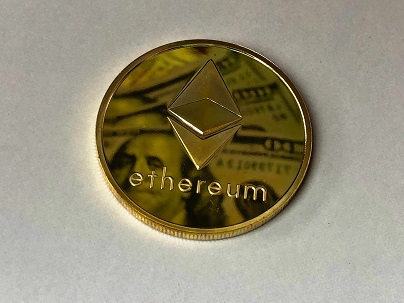
Art met real estate in a new way this year. Krista Kim’s Mars House design appeared on the first irreplaceable, non-fungible token (NFT) for a virtual house and garden. Kim’s virtual experience was followed by an NFT listing for a home in New York (a real one) on the Ethereum blockchain.
Think it’s all a flash in the pan? Look again. Blockchain’s tamper-resistant ledger system offers tremendous benefits for real estate deeds. It’s poised to transform the way we trace a chain of title. And the rise of NFTs just shows how fast things are moving.
Chain of Title Problems: How We Deal With Them Today
A chain of title traces a home through time. When a new owner takes title to a home, a deed represents a new link in the chain.
If no foul play or proofreading lapses happen, placing the deed in the public records enables everyone to know who owns a property, and who has claims on it. The buyer has access to a public record showing that the seller has full rights in the property, that the chain of title is unbroken, and that there are no new claims on the property preventing a full transfer of interest to the buyer.
Not everything is recorded, though. Moreover, today’s open, manual system of deed indexing allows transfers of inaccurate or questionable deeds. What is the open recording system? By law, a county recorder records documents as long as they are procedurally correct. The county recorders generally have no place in verifying the substantive claims in the documents they record. This means our current system is “buyer beware” when it comes to scammers filing fraudulent claims on top of deeds after the last sale of the home.
Chain of title issues must be noticed and repaired so they don’t prevent future sales or financing. The repair work could involve a lawyer drafting a correction deed, or a party with a possible claim clearing up the matter by recording a quitclaim. If all else fails, corrective action depends on a quiet title action in court. A successful quiet title action allows an owner to get title insurance and a mortgage, and to transfer the home free and clear.
But what if we had a recording system that prevented mistakes and false claims on properties in the first place?
Can Blockchain Improve Title Recording Systems?
Hoping to stop the misuse of the system, bills have been introduced into state legislatures — including the Claims Against Real Estate Recordation Act in Illinois. Once enacted, laws like this one would force all claims against a title to be recorded in the county where real estate is located. Mandatory recording is a step forward to better title security. It would be standardized in blockchain recording.
Today, registering a deed often involves a title agent physically going to the county office on our behalf, so a county employee can record the instrument in the public registry. We can expect that to change.
The electronic blockchain ledger does not rely on mailing, printing, scanning or filing papers. It can increase cost efficiencies. And that’s not only for the recording process, but also in terms of the costs and complexities of title insurance. Blockchain could go some way to solving these issues, although it wouldn’t rule out every potential cloud on a title. Home buyers will still want title insurance, but the easier title search and the lessened risk can be expected to reduce premiums.
When the title search is an accurate, quick process, loan approval journeys can be similarly improved. In short: We can expect significant time and cost improvements for the mortgage loan approval process, and the integrity of the homeowner’s title.
The Smart Contract: Title Fraud Meets Its Nemesis
Blockchain takes the reliance on “trust” out of the recording process. Here’s how it works. The current system has people making claims, and county recorders putting those claims into the public record without verifying them. With blockchain, password-protected software validates each data entry. That software is the smart contract. It’s code, activated by blockchain transactions.
Blockchain title recordation updates the chain of title immediately. Each activity is verified by the blockchain algorithms, and cryptographically protected. Each has its own identifier that carries over, one block in the chain to the next. No unauthorized parties can break into the sequence.
All authorized parties in a specific transaction can consent to the verification and recording of their activities. This means the right people have access to the information at all times. The home’s legal description and disclosures, permits, construction activity, inspections and appraisals, and related loan data, could all be placed on a block through the smart contract.
The best outcome? No more lost, falsified or damaged paperwork. No more deed scams. No more wire fraud. No more buyer-beware when it comes to others’ claims on a title. No more wondering if what you see is what you get. Surely most participants in the real estate world will want to explore the potential.
☛ Did you know? Wire fraud is on the rise in 2021. See our Fraud Update: Closing Scams Now Make Up Nearly Half of Cybercrime Losses.
Will Person-to-Person Home Transfers Become Possible?

It’s an intriguing question! The need for title insurance and recording offices are certainly not as entrenched as they once seemed. That indicates that houses will become easier to exchange. But what about the use of fossil fuels in connection with verifying that greater volume of data on the blockchain?
Elon Musk has put it squarely in the news this month: there’s a massive electricity input for “proof of work” verifications used in the Bitcoin blockchain. (Remember last month, when we noted that people could buy a Tesla with bitcoin? This month, that’s over — but let’s see what next month brings.)
Notably, California and other states are blending Bitcoin basics with more flexible and less energy-intensive Ethereum smart contracts.
Pro tip: Bitcoin with a capital B stands for the innovation itself. Written with a lower-case b, bitcoin means the related cryptocurrency. Ethereum is an innovation based on the Bitcoin blockchain. An ether is the related cryptocurrency.
When Will We See the Changes?
The wide adoption of blockchain deed recording software could unfold over the next decade. Pilot runs have already shown the use case:
- In Cook County, Illinois, the Recorder of Deeds ran an eight-month test of title conveyances by blockchain. Transactions were etched into blockchain with Bitcoin’s scripting language — effectively taking the county recorder’s office out of the middle.
- Vermont law effectively required counties to consider blockchain software for deed recording. Burlington and South Burlington have tested out both residential and commercial real estate transactions using blockchain.
- First American Financial has created a shared blockchain system for title insurers and underwriters.
The core reason blockchain will succeed is its fraud resistance. Whether we’re buying, selling, or advising the parties to a transaction, we’ll be far less likely to be taken aback by mistakes and unknowns.
Kris Ferranti, partner in the real estate practice at Shearman & Sterling LLP, puts the point this way:
Regarding land registration and conveyances, blockchain would nearly eliminate fraud in the title recording system. Since blockchain ledgers are immutable and updated in real time, it is much harder for bad information to interrupt the chain and any tampering of recorded data is easily detectable. (PDF: Thomson Reuters Practical Law).
The legal framework, though, is still evolving, Ferranti says.
It looks like blockchain is coming to town, although it will take a few years for it to become widely available. What will happen when it does? Homeowners will reduce risks and costs, and enjoy greater autonomy in real estate transactions.
Supporting References
Act No. 205: An Act Relating to Blockchain Business Development (Vermont, 2018).
Shelby King for Housing Wire, RealTrends.com (HW Media, LLC): NFTs, Blockchain: Why Should You Care? (Apr. 23, 2021).
Computer Systems, Inc., Blockchain — What Does It Mean for the Indiana Recorders Association? (PDF of a presentation to the Indiana Recorder’s Office dated Apr. 24, 2019).
Joanne Cleaver for the Chicago Tribune: Could Blockchain Technology Transform Homebuying in Cook County — And Beyond? (Jul. 9, 2018).
Expert Q&A with Kris Ferranti of Shearman & Sterling LLP, at Shearman com (Dec. 9, 2020).
Photo credits: Joey Kyber and David McBee, via Pexels.
